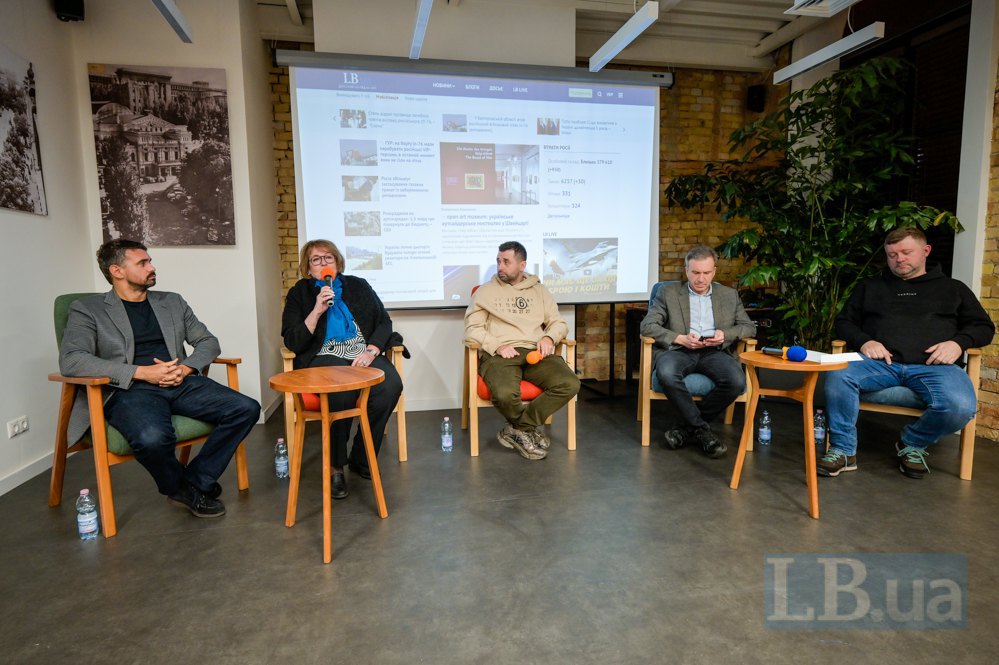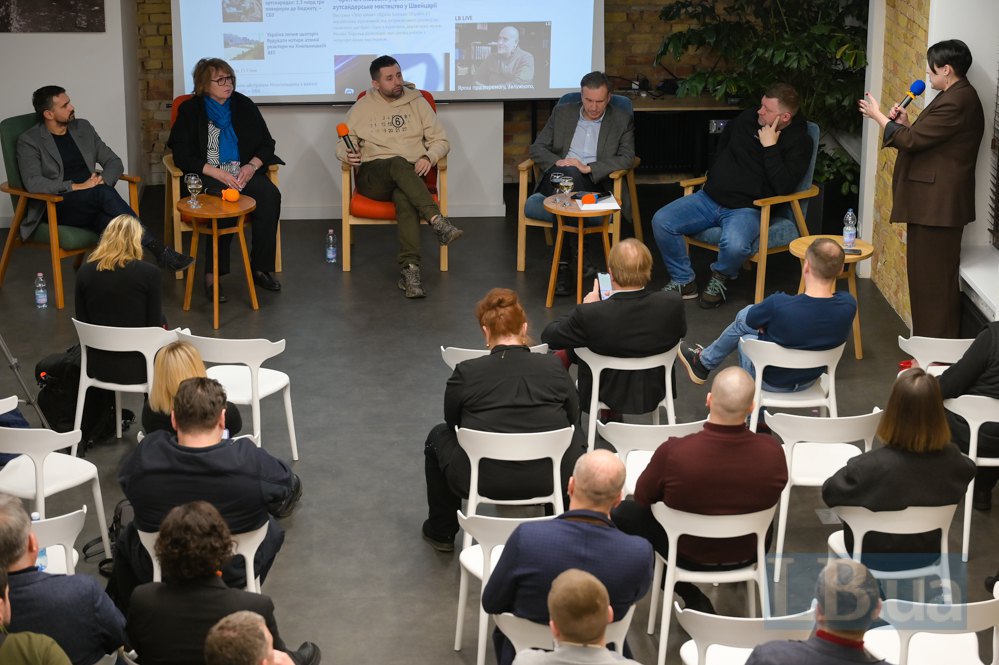
Mobilisation and outflow of human resources
According to the leader of the Servant faction, Davyd Arakhamiya, Ukraine needs to conduct effective mobilisation, primarily due to the planned large-scale replenishment of the Russian army.
"In March, they are planning to deploy 200+ thousand already trained soldiers to Belgorod Region. This will determine our internal agenda and the internal crisis. This is the topic of mobilisation, no matter how much it is tried to be avoided, it is there and it will be there. Of course, the topic of mobilisation will affect all other areas of our lives. Both the economy and the outflow of human resources. Human resources will be the main focus this year," the MP is convinced.
According to him, large-scale mobilisation is inevitable, and the Verkhovna Rada [Ukrainian parliament] will vote on the relevant draft law on 6 February (the discussion took place before the Cabinet of Ministers submitted a new draft law on mobilisation to the Verkhovna Rada - Ed.) Meanwhile, the Ministry of Defence is communicating with the public on how to change the prejudiced, negative attitude of society towards military service.
"Many people really perceive it as follows: today you receive a call-up paper, tomorrow you are checked by the military medical commission, the next day you are in a boot camp, where no one teaches you, you are allowed to make one shot, and the next day you die at the front. There were such cases when everything happened in a chaotic manner. And that's why people say they don't want to join such an army. We are now working with the Ministry of Defence to ensure a normal campaign," Arakhamiya said.
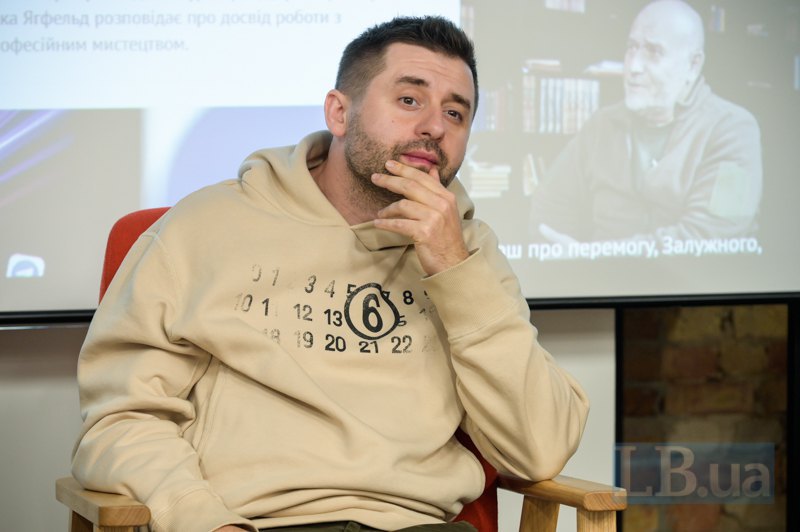
In his opinion, such measures could be:
- MPs, ministers and their deputies undergoing military training in boot camps together with ordinary people;
- disclosure of the real losses that Ukraine has suffered since the full-scale invasion (Arakhamiya insists that they are much lower than what the public thinks they are - Ed;)
- introduction of a recruitment system similar to the US one, where each branch of the armed forces competes for mobilisation resources;
- introduction of smart mobilisation, which takes into account a person's skills, education, and employment.
"It is impossible not to hold mobilisation, we all understand this. In this case, we will return to a year and a half ago, when Russian troops were near Kyiv. Then we will all be ready to mobilise again, but it may be too late," he said.
He suggested there is a tendency towards a split in society with regard to its attitude to war and victory.
"We have a forecast that society may split 50-50. That is, half of the people will say [the war] should be finished as is or under any compromise scenario. The other half will say we should fight until victory.
And there will be many challenges associated with this. They will definitely affect all aspects of our lives - social, economic, and political.
If there is demand, there will be supply. There will be politicians who will target this electorate with these messages. Now this topic is more or less taboo, but I am sure that in six months this taboo will be lifted. And this will be a big challenge for civil society," the MP added.
Parliamentary crisis
There is no unity in parliament, according to Arakhamiya. MPs have to be kept from resigning their seats.
"A major crisis is coming. In my faction alone, I have 17 applications for resignation. That is, we already have 401 people in parliament. We will let one more go for medical reasons. And 226 votes out of 400 are very difficult to collect, to be honest.
I know that there are also people in other factions who want to leave. We have decided for ourselves that we will not support resignations. Only for medical reasons. Otherwise, there are no more conditions under which we will vote for the resignation of mandates in order to keep the parliament legitimate," the leader of the Servant faction said.
In addition, last year's speculations about the possibility of elections had further divided the political forces. And despite promises that there will be no elections until the war is over, political forces do not believe in this and are gradually preparing, Arakhamiya added.
The situation is further complicated by Russian propaganda against the Ukrainian authorities and public dissatisfaction with the work of parliament, first deputy speaker Oleksandr Korniyenko said.
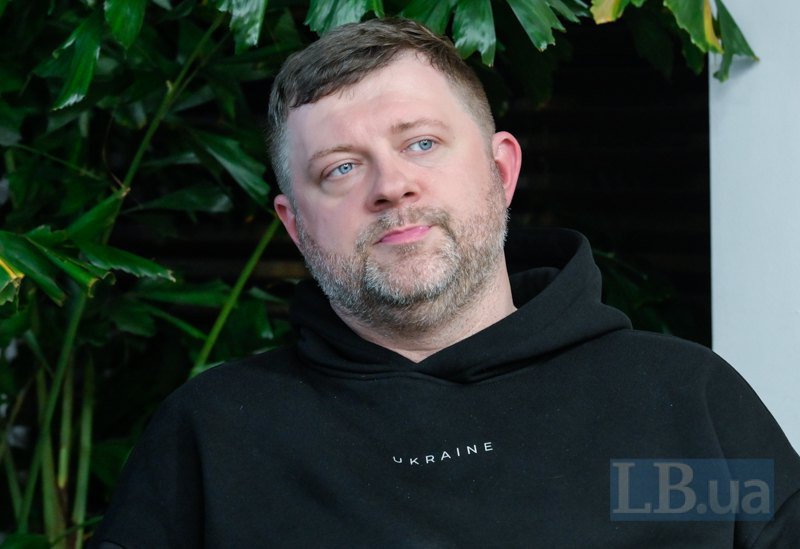
"This is the first parliament in history that has overstayed its welcome, let's be honest... People are demanding: let's disband them now. It's a tease for society that the parliament is sitting out. This is, of course, superimposed by Russian propaganda, which says that all MPs should be shot and sent to the trenches... And the generic and non-generic traumas of Ukrainian parliamentarism - the inability to reach an agreement, distrust, etc. - are also adding up," he noted.
"However, the prospects that the parliament can rely on in this difficult situation include an understanding of the inevitability of the fact that we will have to work for who knows how long - a year, two years, we do not know. And in a situation where the headquarters are buzzing with activity, even though 80% of the population is against the elections, we still need to find some common ground," Korniyenko added.
In addition, in 2024, parliament will mostly pass bills that are a direct requirement of Western partners.
"In the context of joining the EU, Ukrainian politicians have shown that there are some red lines. There is a bigger goal than political and local interests," he said.
However, not all votes will be as effective and cohesive. First, because there will be no clear packages of bills, as was the case with the seven conditionals (requirements for EU membership).
"For example, there are no conditionals for NATO, it is a very political process. There is a requirement from the partners: if you want to join NATO, you have to join the EU. This is formulated very primitively, but there is such a requirement. There is no separate track for NATO. There are three laws, some sectoral ones in the field of national security, and technical things," Korniyenko said. The packages on the IMF and the World Bank are on the agenda, he added, with a lot of room for manipulation, amendments, and discussions that delay the adoption of laws. The imperfect regulations of the Verkhovna Rada also factor in.
Nevertheless, Korniyenko said, there are plans to increase the number of sittings by almost a third, from 48 last year to 70 this year, to return to a notional calendar and make the work of the Verkhovna Rada more public, as far as security allows.
Addiction to international assistance, the need for key reforms and domestic capital
As far as economy is concerned, addiction to international aid is a threat, said Pavlo Sheremeta, former Minister of Economic Development and Trade of Ukraine and founder of the Kyiv Mohyla Business School.
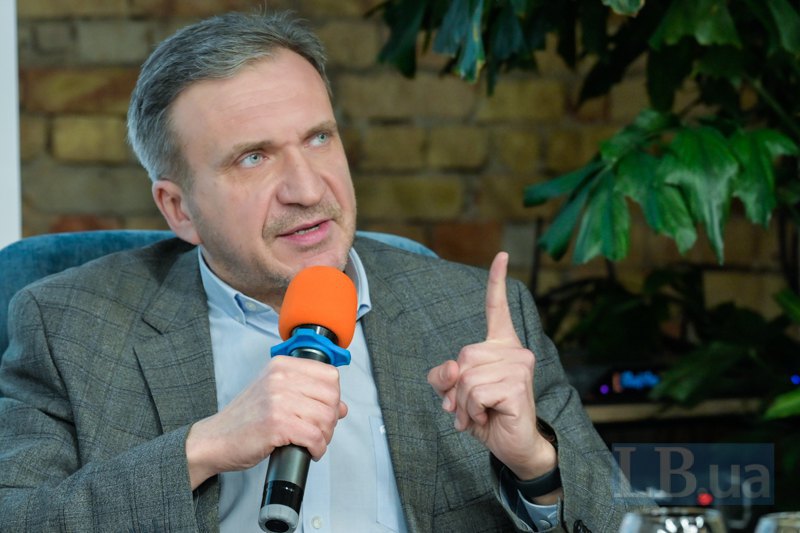
"International donors have provided Ukraine with aid equal to our GDP. I find it hard to believe. Have you noticed that we have stopped talking about the Marshall Plan? It is better not to mention it. Do you know why? Because the Marshall Plan for the beneficiary countries provided assistance at the level of 2.8% of GDP. On average. Even for smaller economies like Greece and Austria, it was 8%. We are now talking about 100% of our GDP, if we take all the aid in full. We should be grateful. We are grateful. We need to continue to seek assistance, and we are doing so. In this case, honour and praise to our diplomats and the country's leadership as well," said the founder of the Kyiv Mohyla Business School.
In his opinion, when this assistance decreases and eventually disappears altogether, we will go through the five stages of grief: denial, anger, depression, negotiation, and then acceptance. We are currently in the denial stage, Sheremeta suggested.
However, Ukraine is best at reforms when it has no money, he said. And the crisis should be used as an opportunity for reform.
First of all, pension, healthcare and educational reforms.
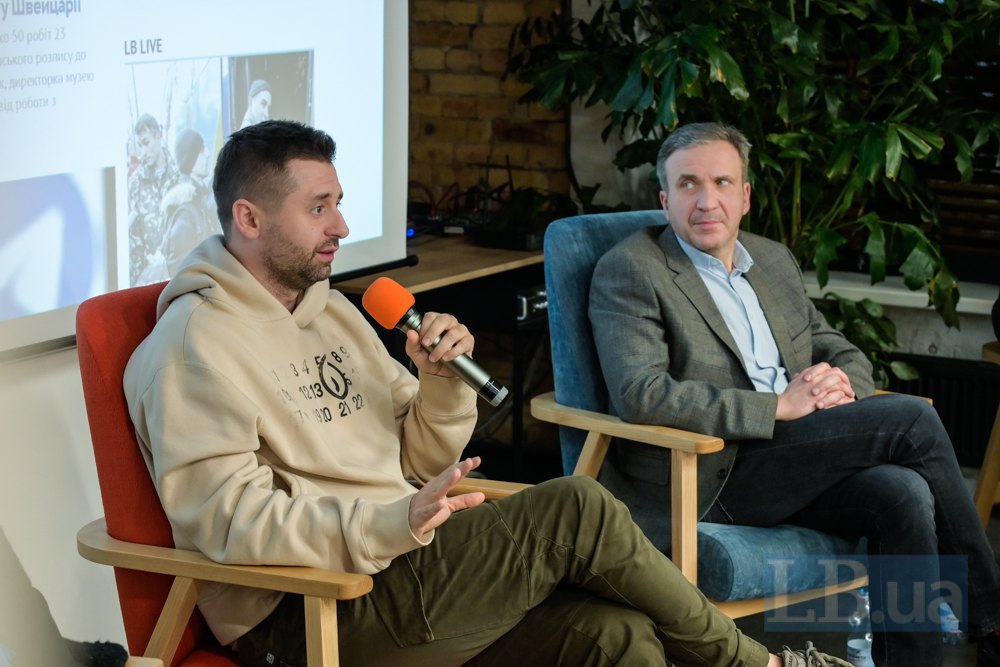
"Ukraine has a great internal resource. We can see it in the streets of Kyiv. We see it in Rynok Square in Lviv, in the central squares of other western Ukrainian cities. We see quite a lot of consumption, which means that there is money in the country.
When we talk about mobilising people, we should also talk about mobilising money. The instrument of such mobilisation is savings. There is very little talk about this in Ukraine. And when we look at pre-war statistics, savings and domestic investment in the country are fatally low. It was 12-13% whereas the normal level in the world is 25%. For a country like Ukraine, it should be 30%," said Sheremeta.
In his opinion, Ukrainians do not save because they are confident that the state will pay their pensions. This principle should be abandoned, the economist is convinced.
"It is a matter of culture and understanding that the state does not owe you a pension if you have worked in the private sector all your life. The role of the state is to maintain macro-financial stabilisation. We have been doing that for the last year," the economist said.
He believes that people should be told that they should get used to the idea of independent pension provision.
"If you have worked in the private sector all your life, you are responsible for your pension, not the state. Please get used to it," Sheremeta stressed.
Another necessary and important step, in his opinion, is to optimise spending and reduce them to the required level. He drew an example of the education sector, where optimisation was attempted by merging universities. However, due to the huge resistance of the system, this did not happen in a year.
Attracting investment is also better than "pouring money from a state into a state", he said.
"In other words, private businesses that raise funds from private sources in the West or in the East do better. Because they count every penny, every cent, and they know where the money will go. And this channel should be used."
He insists that these steps - deregulation, liberalisation, and stimulation of entrepreneurship - are estimated to yield 85% of economic growth.
Building a state partnership with business
A strong economy is more important than any other factor in a country at war, said Ihor Liski, supervisory board chairman of EFI Group. Because this means building factories that produce drones, shells, etc.; as well as the ability to buy any modern weapons and equipment.
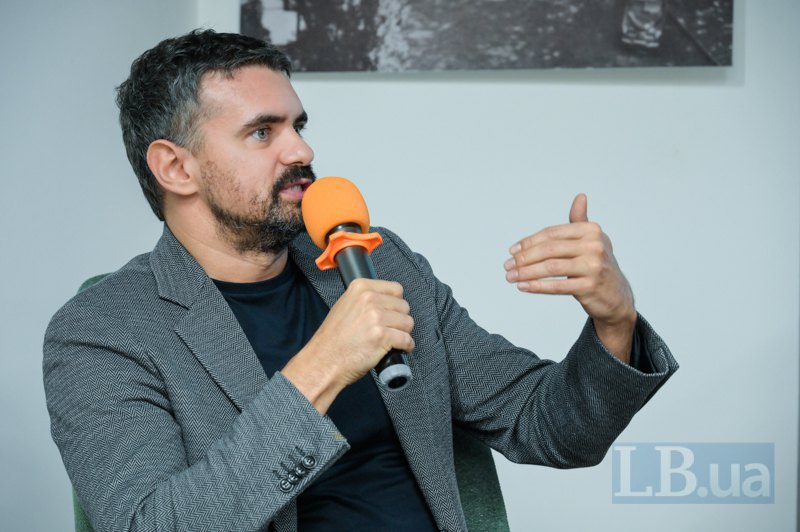
According to the businessman, an efficient economy looks like this:
"We have to sell the idea that in five to seven years Ukraine will be in the European Union. Just sell it. We need to build an efficient plant in every industry.
We definitely need to become a supplier of all goods which is closer to Europe. Take this function away from China. We definitely need to become a more advanced, higher-value-added country to take the pressure off European farmers, process products here and supply them ready-made.
And the last is defence industry. We definitely need to become a manufacturer of modern, cool weapons and immediately test them at the front."
But to do this, Liski stressed, it is necessary to change the social contract that has developed in the business sector since independence and "is based on organised crime, when only those with power and force can make money", who buy villas in Europe, where there are rules of the game and protection of private property, and treat their own country as a resource.
New modern businesses are not satisfied with these rules, he added.
"Businesses need protection of private property, protection of intellectual property, they need the state as a partner to protect them from unfair competition, to protect them in foreign markets, because it is difficult to conquer markets if the state does not help you," Liski said. He added: "New rules of the game, where there is a transparent business that creates jobs, that has built itself, that is interested in the new rules of the game, that wants to build new enterprises, that wants to compete in Europe, are needed right now. We don't have time for a change of generations."
" I want to be a partner. I want to be respected rather than when they dig up something, throw you in jail and then prove something. And you go lose your reputation, money and have no plans at all," the businessman said.
"I believe that the Ukrainian business that has remained in this country, has not given up, has not closed down, has not left to try a different fate abroad, is the core that can be relied on," Liski said.
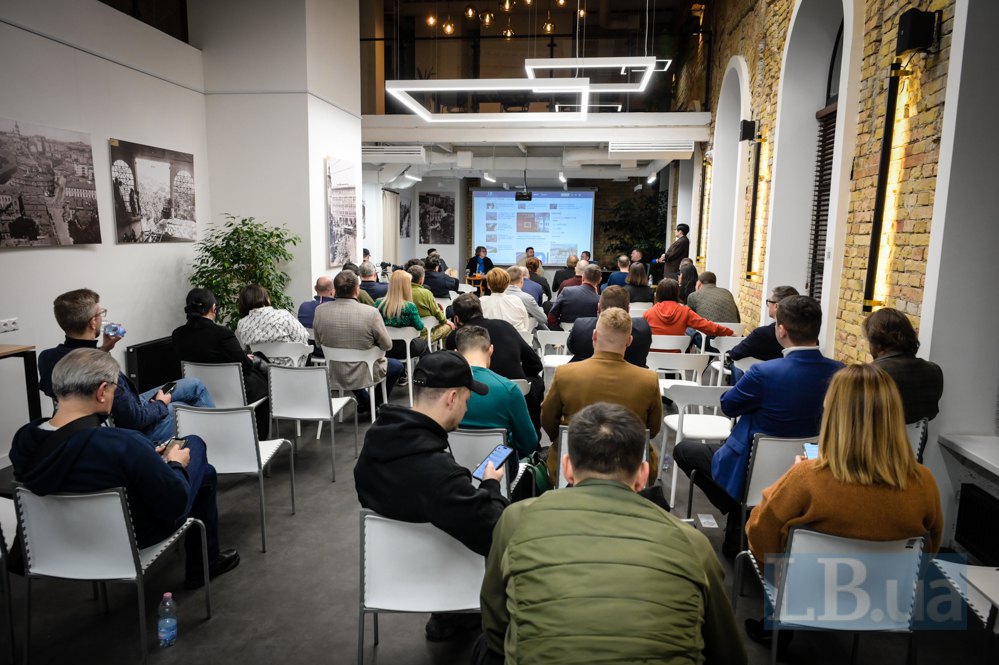
Depopulation, high mortality, ageing population
Since the beginning of the full-scale invasion, said Ella Libanova, director of the Ptukha Institute for Demography and Social Studies of the National Academy of Sciences of Ukraine, according to the Rating group, which constantly monitors the situation, Ukrainians have never said that they believe the country is heading in the wrong direction.
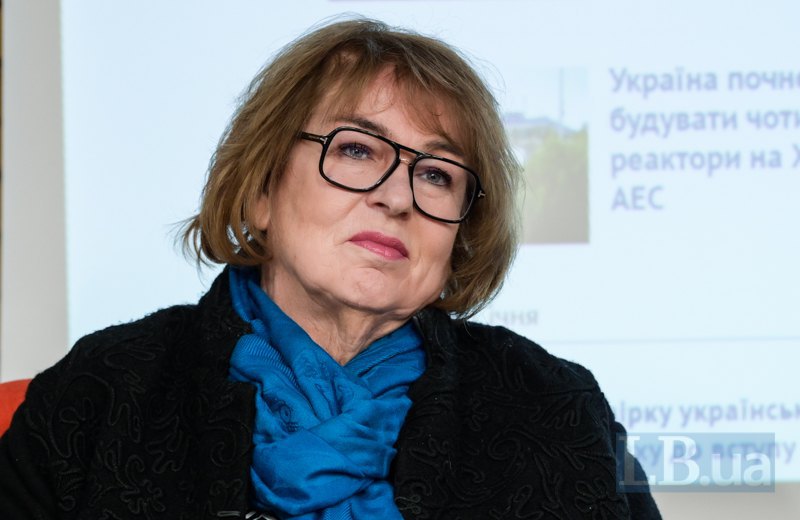
the difference between those who believe that we are moving in the right direction and those who believe that we are moving in the wrong direction has decreased (61% vs. 23% in September - Ed.). This is true. Well, how could it not decrease in 23 years? How could it not? But it's still the difference we need. This is a wonderful result," the sociologist suggested.
She also disagreed with Arakhamiya about the split in society.
"Yes, we are tired of the war, and that's normal. And, for example, Kharkiv residents are much more tired than we are here [in Kyiv], simply because they are being shelled so much. When I see our colleagues from the Academy of Sciences working there, I don't understand how [they are coping]. How could they drag all these instruments into the basement and work there? But they do. I don't see any fatigue from the war in the sense that we will agree to any terms. Do what you want with me, but I don't see it," the sociologist said.
But the war has taken its toll on the population. First, she noted, no-one knows the gender and age structure of the population. According to her, it is possible to estimate more or less accurately the number of people, but not the gender and age composition. Neither the State Statistics Service nor sociologists have this data.
The second significant challenge is Ukrainians who will not return from abroad. According to Libanova, at least half of the six million who left after 24 February 2022 will not return. And this is a positive forecast. In the Balkans, only a third returned after the war.
The return of Ukrainians home is also complicated by the fact that foreign countries create conditions for them to stay.
"They (countries - Ed.) are very interested in such a workforce. According to both German and Polish researchers, 70% of our women who have left have higher education. Think about it - 70%. The doctors who went there work, for example, as nurses. But what qualifications do these nurses have? So will an ageing Europe expel our people to its detriment? No, it won't," Libanova said. She cited the example of Germany.
"Please tell me why the Germans make language learning a condition for receiving aid? It costs a lot of money and time. But they do it anyway. You can't help but understand where this is going. Why am I of such a bad opinion of the process when our migrants move from Poland to Germany in the first place? Because the likelihood that a person will return from Poland is higher than from Germany. When they have already arrived in Germany, found a job there, their child is studying at school, kindergarten or university, and everything is destroyed here, it is difficult for them to return. And every day of the war means fewer people return. They are adapting there, while the amount of destruction is increasing here," Libanova said.
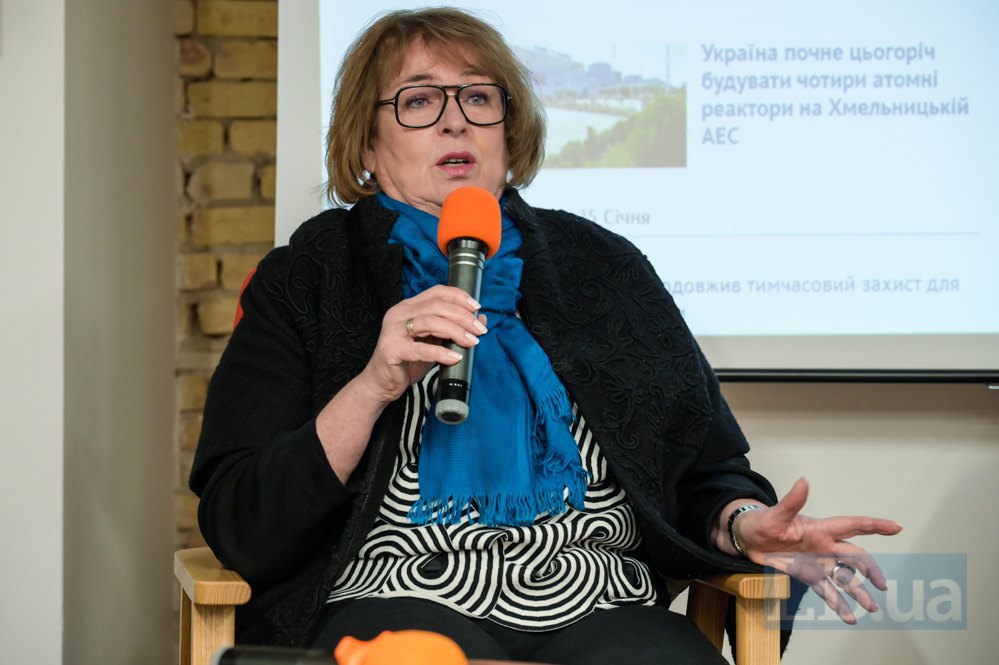
The non-return of refugees plus the almost guaranteed absence of a baby boom after the war will lead to a phenomenon called depopulation, the professor warned.
"There will not be 40 million of us. There won't be 52, like on 1 January 1993. Let's forget about it. Can we reach 40 million people? Yes, we can. But only through massive immigration. Is everyone ready for this? That people will come to us, massively, with a completely different culture, a different religion, a different way of life? I don't know. I am not sure that our population is ready for this," Libanova said.
She added that Ukrainians are not xenophobic, but according to the Institute of Sociology of the Academy of Sciences, they are not very tolerant of other nationalities, as they have never lived in a multi-ethnic environment.
"Therefore, if we talk about 40 million people, we need to explain to people that it will not be only Ukrainians. I mean a Ukrainian political nation, not an ethnic one," she said.
Among the positive developments, she noted the development of the Demographic Development Strategy, which aims to:
- support for families and the birth rate;
- migration growth;
- reduction of mortality among men (40% of 16-year-old boys do not reach retirement age, while among women this figure reaches 18%);
- adapting society to the ageing population.
"No matter what we do, the proportion of older people will increase. And we need to prepare for this," said Libanova. Therefore, older people should be provided with the opportunity to live a long and active life and encouraged to do so. And society needs to stop perceiving pensioners as a mere ballast.
